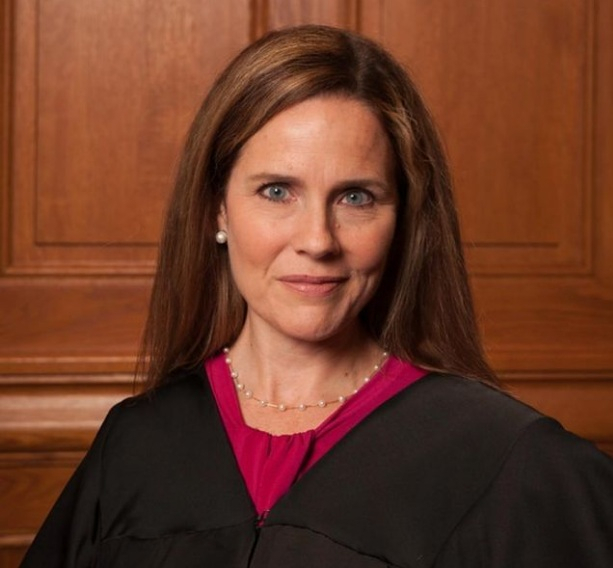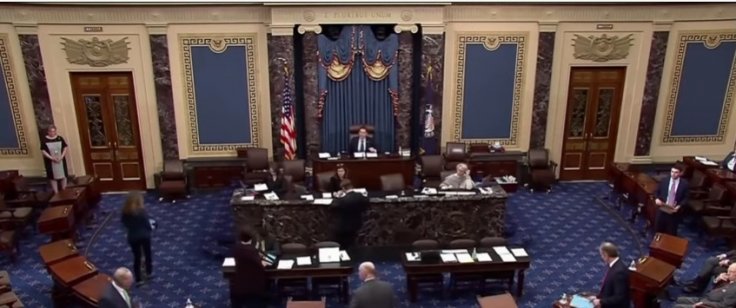Supreme Court nominee Amy Coney Barrett, who appeared before the Senate Judiciary Committee, said she gave no commitments to the White House on how she would rule on Obamacare. She also reiterated that she had said under oath that she has had no discussion with the White House over how she would handle election-related cases either.
"I am not here on a mission to destroy the Affordable Care Act ... I'm just here to apply the law and adhere to the rule of law," Barrett said.
Barrett faced the Senate Committee for as many as 11 hours as the Democrats grilled her. However, she did not say whether she would recuse herself from taking part in a major Obamacare case in future.
More from Reuters

While Democrats were persistent in their questioning, the hearing retained a respectful tone and Barrett remained even-tempered while nimbly sidestepping questions on her views on abortion, LGBT rights, gun control and voting rights.
In the Obamacare case, Trump and Republican-led states are seeking to invalidate the law. Barrett said the case centered on a different legal issue from two previous Supreme Court rulings that upheld Obamacare that she has criticized.
Senator Kamala Harris, who is Democratic presidential candidate Joe Biden's running mate, was not satisfied with Barrett's answers, saying Americans were fearful that Obamacare would be overturned in the middle of a deadly pandemic.
"Republicans are scrambling to confirm this nominee as fast as possible because they need one more Trump judge on the bench before Nov. 10 to win and strike down the entire Affordable Care Act," said Harris, a Judiciary Committee member.
The law, signed by Trump's Democratic predecessor, Barack Obama, has enabled millions of Americans to obtain medical coverage.
Trump has asked the Senate, controlled by his fellow Republicans, to confirm Barrett before Election Day. Trump has said he expects the Supreme Court to decide the election's outcome as he faces Biden.

Barrett said no one at the White House sought a commitment from her on how she would rule on that or any other issue.
In declining to commit to stepping aside on politically charged cases in light of her nomination so near an election and comments made by Trump on the issues, Barrett said she would follow rules giving justices the final say on recusal amid questions about impartiality.
Republicans have a 53-47 Senate majority, making Barrett's confirmation a virtual certainty. If confirmed, Barrett, 48, would give conservatives a 6-3 Supreme Court majority. She is Trump's third Supreme Court nominee.
The hearing resumes at 9 a.m. (1300 GMT) on Wednesday.
ABORTION RULING
Abortion rights advocates fear Barrett would vote to overturn the 1973 Roe v. Wade ruling that legalized abortion nationwide. Asked about the ruling, Barrett said she would consider the usual factors on whether to overturn a precedent.
But Barrett indicated Roe v. Wade was not a "super-precedent" that could never potentially be overturned.
"I'm answering a lot of questions about Roe, which I think indicates Roe does not fall in that category. Scholars across the spectrum say that doesn't mean that Roe should be overruled, but descriptively it does mean it is not a case that everyone has accepted," Barrett said.
Senator Dianne Feinstein, the panel's top Democrat, asked Barrett whether she agreed with her mentor, the late conservative Justice Antonin Scalia, that Roe v. Wade was wrongly decided and should be overturned.
After Barrett sidestepped, Feinstein told her that "it's distressing not to get a straight answer."
Barrett, a devout Catholic and a favorite of religious conservatives, said she could set aside her religious beliefs in making judicial decisions.
She would not say whether she agreed with Scalia that the 2015 Supreme Court Obergefell v. Hodges ruling legalizing gay marriage nationwide was wrongly decided. She said she would not discriminate on the basis of "sexual preference," prompting Democratic Senator Mazie Hirono to chastise her for using an "offensive and outdated term."
Barrett also declined to comment specifically on whether presidents should commit to a peaceful transfer of power if they lose an election. Trump created a furor in September when he refused to make that commitment.
"To the extent that this is a political controversy right now, as a judge I want to stay out of it and don't want to express a view," Barrett told Democratic Senator Cory Booker.
Prompted by Booker again to comment, she said: "One of the beauties of America from the beginning of the republic is that we have had peaceful transfers of power."
Asked about George Floyd, a Black man killed by Minneapolis police in May in an incident that triggered widespread protests, Barrett called the issue "very, very personal for my family" because among her seven children, two - adopted from Haiti - are Black. Barrett said she and one of her daughters, Vivian, cried together after seeing the video.
Trump nominated Barrett to a lifetime post on the court on Sept. 26 to succeed the late liberal Justice Ruth Bader Ginsburg. The four-day hearing is a key step before a full Senate vote due by the end of October on Barrett's confirmation.









